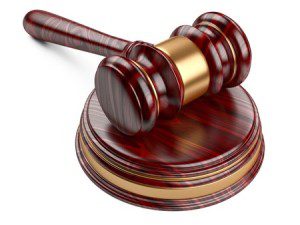 Chief Justice Rabner continued: The Court finds continued scientific support for only one aspect of CSAAS — delayed disclosure — because scientists generally accept that a significant percentage of children delay reporting sexual abuse. Expert testimony about CSAAS in general, and its component behaviors other than delayed disclosure, may no longer be admitted at criminal trials. Evidence about delayed disclosure can be presented if it satisfies all parts of the applicable evidence rule. See N.J.R.E. 702. In particular, the State must show that the evidence is beyond the understanding of the average juror. That decision will turn on the facts of each case. Here, because the victim gave straightforward reasons about why she delayed reporting abuse, the jury did not need help from an expert to evaluate her explanation. However, if a child cannot offer a rational explanation, expert testimony may help the jury understand the witness’s behavior. The Court asks the Committee on Model Jury Charges to develop an appropriate instruction on delayed disclosure. In this appeal, there was overwhelming evidence of defendant’s guilt. As a result, the expert testimony about CSAAS introduced at trial was harmless, and defendant’s convictions are affirmed.
Chief Justice Rabner continued: The Court finds continued scientific support for only one aspect of CSAAS — delayed disclosure — because scientists generally accept that a significant percentage of children delay reporting sexual abuse. Expert testimony about CSAAS in general, and its component behaviors other than delayed disclosure, may no longer be admitted at criminal trials. Evidence about delayed disclosure can be presented if it satisfies all parts of the applicable evidence rule. See N.J.R.E. 702. In particular, the State must show that the evidence is beyond the understanding of the average juror. That decision will turn on the facts of each case. Here, because the victim gave straightforward reasons about why she delayed reporting abuse, the jury did not need help from an expert to evaluate her explanation. However, if a child cannot offer a rational explanation, expert testimony may help the jury understand the witness’s behavior. The Court asks the Committee on Model Jury Charges to develop an appropriate instruction on delayed disclosure. In this appeal, there was overwhelming evidence of defendant’s guilt. As a result, the expert testimony about CSAAS introduced at trial was harmless, and defendant’s convictions are affirmed.
N.J.R.E. 702 governs the admission of expert testimony. The proponent of expert evidence must establish three things: (1) the subject matter of the testimony must be “beyond the ken of the average juror”; (2) the field of inquiry “must be at a state of the art such that an expert’s testimony could be sufficiently reliable”; and (3) “the witness must have sufficient expertise to offer the” testimony. State v. Kelly, 97 N.J. 178, 208 (1984). Consistent with the remand order, the hearing before Judge Bariso focused primarily on the reliability prong. In criminal cases, the Court has continued to rely on the Frye standard to assess reliability. The test requires trial judges to determine whether the science underlying the proposed expert testimony has “gained general acceptance in the particular field in which it belongs.” Frye v. United States, 293 F. 1013, 1014 (D.C. Cir. 1923).
Expert testimony tends to carry a lot of weight with jurors. The Court’s analysis regarding expert testimony only being necessary if alleged victims cannot give straightforward explanations will likely lead law enforcement to not request explanations for delays in reporting so that expert testimony can be admitted to bolster their case.
